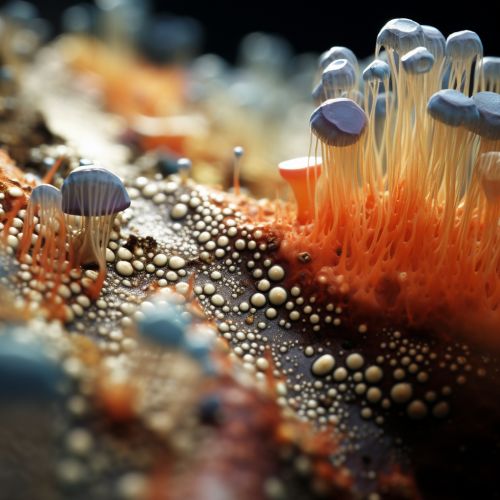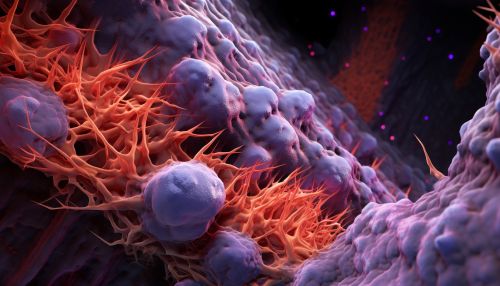Chitin Synthesis Inhibitors
Introduction
Chitin is a long-chain polymer of a N-acetylglucosamine, a derivative of glucose, and is one of the most abundant biopolymers in the world. It is a primary component of cell walls in fungi, the exoskeletons of arthropods, such as crustaceans and insects, and the scales of fish and amphibians. Chitin synthesis inhibitors (CSIs) are a group of chemicals that interfere with the process of chitin production in insects, crustaceans, and fungi.


Mechanism of Action
Chitin synthesis inhibitors work by blocking the action of chitin synthase, the enzyme responsible for chitin production. This enzyme is crucial for the growth and development of many organisms, including insects and fungi. By inhibiting this enzyme, CSIs prevent these organisms from forming their protective outer shells or cell walls, leading to their eventual death.
Types of Chitin Synthesis Inhibitors
There are several types of chitin synthesis inhibitors, each with its unique mode of action and range of target organisms. These include benzoylphenyl ureas, buprofezin, and novaluron, among others.
Benzoylphenyl Ureas
Benzoylphenyl ureas (BPUs) are a group of insecticides that inhibit chitin synthesis in insects. They are particularly effective against a wide range of insects, including beetles, moths, and butterflies. BPUs work by blocking the action of chitin synthase, preventing the insect from forming its exoskeleton during the molting process.
Buprofezin
Buprofezin is another type of chitin synthesis inhibitor that is primarily used against scale insects and whiteflies. Unlike BPUs, buprofezin does not directly inhibit chitin synthase. Instead, it interferes with the process of chitin production by disrupting the normal molting process of the insect.
Novaluron
Novaluron is a chitin synthesis inhibitor that is effective against a wide range of insects, including mosquitoes, fleas, and ticks. It works by disrupting the normal molting process of the insect, preventing it from forming a new exoskeleton and leading to its death.
Applications
Chitin synthesis inhibitors have a wide range of applications, from agricultural pest control to medical treatments.
Agricultural Pest Control
In agriculture, CSIs are used to control a variety of pests, including insects, mites, and fungi. They are particularly effective against insects that undergo molting, such as beetles, moths, and butterflies. By inhibiting chitin synthesis, these pesticides prevent the pests from forming their protective exoskeletons, leading to their death.
Medical Treatments
In medicine, CSIs are used to treat fungal infections. Many fungi have cell walls made of chitin, and by inhibiting chitin synthesis, these drugs can effectively kill the fungi. Some CSIs are also being investigated for their potential use in treating parasitic infections, such as those caused by nematodes and protozoa.
Safety and Environmental Impact
Chitin synthesis inhibitors are generally considered safe for humans and the environment. They are non-toxic to mammals, birds, and most beneficial insects. However, they can be harmful to aquatic organisms, particularly crustaceans, which also rely on chitin for their exoskeletons.
Future Directions
Research is ongoing to develop new and more effective chitin synthesis inhibitors. These include inhibitors that target different stages of the chitin synthesis process, as well as those that can be used against a wider range of organisms. There is also interest in developing CSIs that are more environmentally friendly and have fewer non-target effects.
